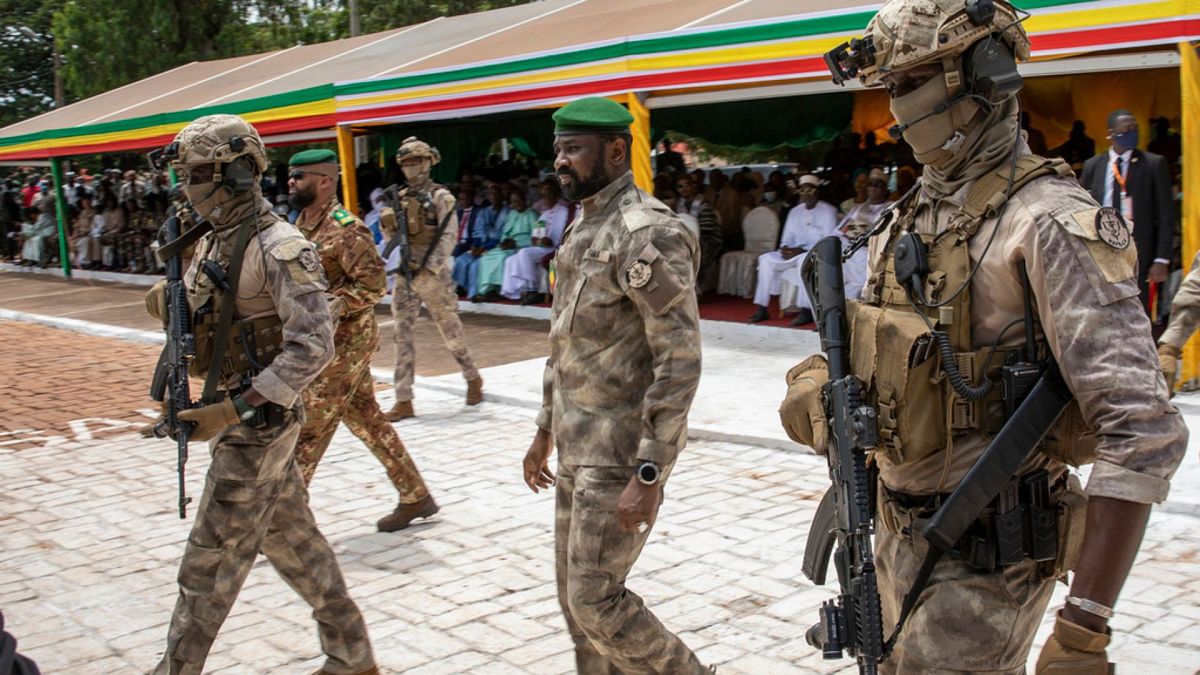A military training camp in Mali’s capital Bamako was recently attacked by extremists, as reported by the country’s army. Gunmen attempted to infiltrate the Faladié gendarme school, leading to a sweep operation being conducted to contain the situation. Although the armed men behind the attack have not been formally identified, the army assured the public that the situation was under control and urged people to avoid the area. Additionally, Bamako airport was temporarily shut down and UN agents were advised to limit their movements until further notice. This incident highlights the ongoing security challenges faced by Mali and its neighboring countries, Burkina Faso and Niger, as they continue to combat insurgency led by armed groups affiliated with Al-Qaeda and the Islamic State group.
Mali has been grappling with insurgency for over a decade, with various armed groups posing a threat to stability and security in the region. In recent years, the country has experienced military coups, leading to the expulsion of French forces and the deployment of Russian mercenary units for security assistance. The current ruling junta, led by Colonel Assimi Goïta, has been struggling to contain growing attacks by jihadist groups, particularly in central and northern Mali. The recent attack on the military training camp in Bamako further underscores the challenges faced by the government in addressing the persistent threat of extremism in the country.
The attack on the military training camp in Bamako is a stark reminder of the evolving security landscape in Mali, where extremist groups continue to target security forces and infrastructure. The presence of armed groups, including those affiliated with Al-Qaeda and the Islamic State group, poses a significant challenge to the stability and peace of the region. The increasing frequency of attacks in Mali, as well as its neighboring countries, highlights the need for concerted efforts to address the root causes of extremism and to enhance security measures to protect the civilian population.
The recent incident in Bamako serves as a wake-up call for the international community to support Mali and its neighboring countries in their efforts to combat extremism and terrorism. The attack on the military training camp underscores the need for continued cooperation and coordination among regional and international partners to address the complex security challenges facing the Sahel region. It is essential for the international community to provide assistance and resources to help strengthen the capacity of the Malian security forces and to address the underlying socio-economic factors that fuel extremism in the region.
As Mali grapples with the aftermath of the attack on the military training camp in Bamako, it is crucial for the government to prioritize efforts to enhance security and stability in the country. The government must work towards addressing the root causes of extremism, including poverty, inequality, and governance issues, while also improving the capacity of security forces to respond effectively to security threats. By strengthening institutional capacity and promoting good governance, Mali can build resilience against extremism and ensure a safer future for its citizens.
In conclusion, the attack on the military training camp in Bamako highlights the continued threat posed by extremist groups in Mali and the Sahel region. It is imperative for the government to take proactive measures to address the root causes of extremism and terrorism while also strengthening security measures to protect the civilian population. International support and cooperation are essential in addressing the complex security challenges facing Mali and its neighboring countries. By working together, the international community can help enhance security and stability in the region and build a better future for the people of Mali.










